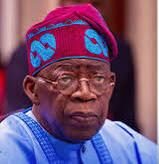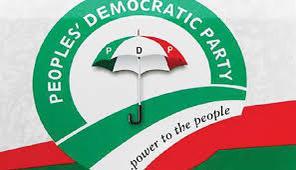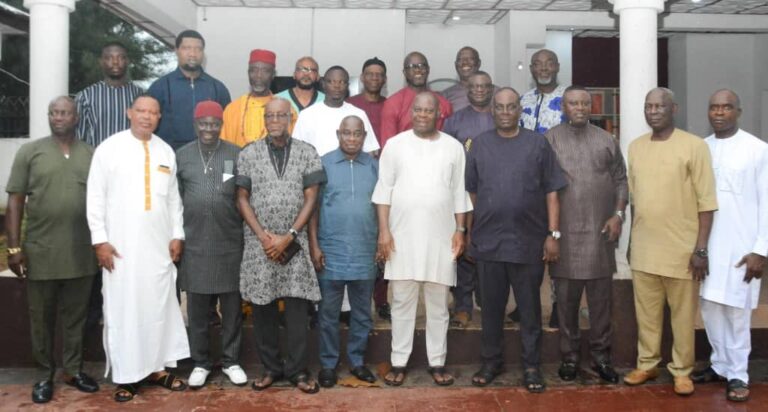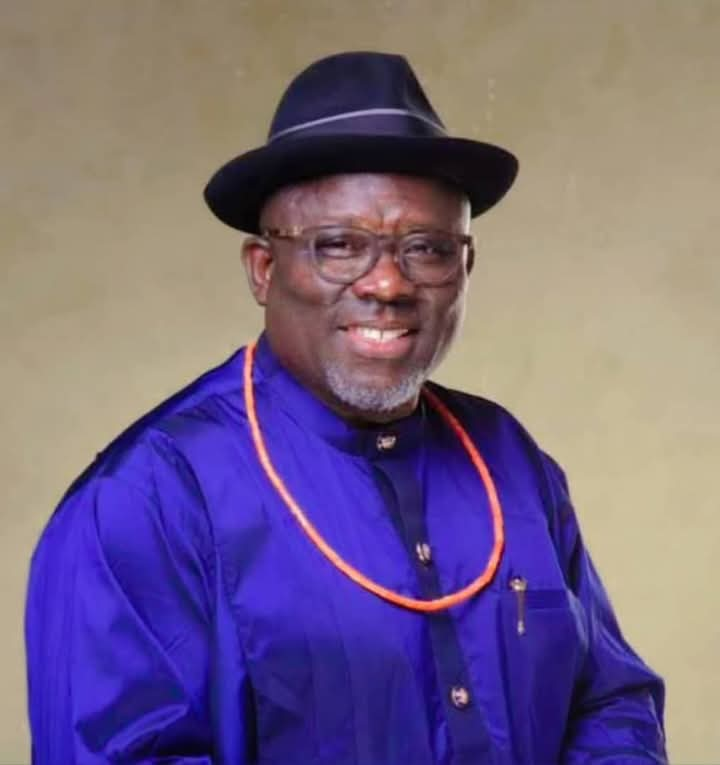
south south region approves of tinubu and others
The Supreme Court of Nigeria has indicated that it will schedule a hearing date for the legal challenge mounted by eleven governors affiliated with the Peoples Democratic Party (PDP) concerning the declaration of a state of emergency in Rivers State.
read:https://naijanewswatch.com/tompolo-in-niger-delta/
This procedural step will be undertaken following the conclusion of the Supreme Court’s ongoing Easter vacation, according to information obtained by naijanewswatch. The resolution of this significant constitutional matter will thus be addressed upon the resumption of judicial activities.
Dr. Festus Akande, the Director of Information and Public Relations at the Supreme Court, officially confirmed the timeline for the progression of this suit. He stated that while the apex court is currently in recess for the Easter break, the Justices will attend to the matter and assign a hearing date once they reconvene at the end of the current month.
This pronouncement provides a clear indication that the legal challenge will be given due consideration by the highest court in the land in the immediate post-vacation period.
The lawsuit in question, bearing the designation SC/CV/329/2025, directly contests the constitutional legitimacy of President Bola Tinubu’s recent declaration of a state of emergency in Rivers State
A central point of contention within the suit is whether the President possesses the constitutional authority to suspend a democratically elected government in any of the federating states of Nigeria. This fundamental question strikes at the heart of the principles of federalism and the separation of powers enshrined in the nation’s constitution.
Furthermore, the eleven PDP governors are also challenging a subsequent decision made by President Tinubu, specifically his appointment of a Sole Administrator to govern Rivers State during the period of the declared state of emergency. The appointment of an unelected official to oversee the affairs of a state with an existing democratic structure raises significant constitutional questions about the extent of presidential powers in such circumstances and the implications for democratic governance at the sub-national level.
The sequence of events leading to this legal challenge began on March 18, when President Tinubu issued a declaration of a state of emergency in Rivers State.
This declaration entailed the suspension of the democratically elected Governor of Rivers State, Siminalayi Fubara, his Deputy Governor, Ngozi Odu, and all elected members of the Rivers State House of Assembly. The initial duration of this suspension was set at six months, signaling a significant intervention in the governance structure of the state.
Following this declaration and the subsequent suspension of the elected officials, the governors of eleven states under the control of the Peoples Democratic Party initiated legal action. These states include Adamawa, Enugu, Osun, Oyo, Bauchi, Akwa Ibom, Plateau, Delta, Taraba, Zamfara, and Bayelsa. In their suit, they have named the Attorney General of the Federation and the National Assembly as the first and second defendants, respectively, indicating the federal entities they believe are central to the constitutional issues at stake.
In their submissions to the Supreme Court, the plaintiff governors are seeking a definitive judicial interpretation on several critical sections of the 1999 Constitution. Specifically, they are asking the court to determine whether, under the provisions of Sections 1(2), 5(2), 176, 180, 188, and 305 of the Constitution, the President has the lawful power to suspend or otherwise interfere with the constitutionally established offices of a state governor and deputy governor, and to replace them with an unelected nominee under the premise of a state of emergency.
Additionally, the governors are imploring the Supreme Court to adjudicate on whether, under Sections 1(2), 4(6), 11(4) and (5), 90, 105, and 305 of the Constitution, the President can legally suspend a state House of Assembly in circumstances similar to those that transpired in Rivers State. This aspect of the suit addresses the suspension of the legislative arm of the state government and its constitutional implications within Nigeria’s federal structure.
Furthermore, the legal challenge raised by the PDP governors includes concerns regarding alleged threats purportedly conveyed by the President through the Attorney General. These alleged threats involve the potential suspension of other elected governors and their deputies, leading the plaintiffs to argue that such actions could constitute a violation of fundamental constitutional provisions and undermine the foundational principles of federalism that underpin the Nigerian state. The Supreme Court’s eventual ruling on this matter will have significant ramifications for the balance of power between the federal and state governments.




